Pre-Veterinary Internships Abroad: Wildlife Conservation in Botswana

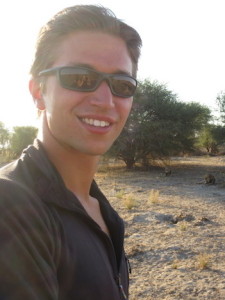 Dumela! Have you ever dreamed of doing wildlife research in Africa?
Dumela! Have you ever dreamed of doing wildlife research in Africa?
And I don’t mean the Africa that involves 5-star accommodations or air conditioned safari rides. I mean the Africa where your tent is both your place of rest and the only thing between you and the hyenas that come by camp at night. I’m talking about the Africa where you always need to secure your food, otherwise baboons will take advantage of your carelessness.
This is the real Africa; where the heat can be fierce, the snakes can be plentiful, and lions sing you to sleep with their haunting calls. It may sound intimidating at times, but it was the best three months of my life.
I participated in a study abroad program with Round River Conservation Studies for three months in Botswana this past fall of 2013 during the first semester of my junior year at the University of Vermont.
Conservation is the focus of all of Round River’s programs, but the program in Botswana is centered on wildlife research in the form of the collection of spatial data (Concession Area, GPS location, etc) and non-spatial data (Age, Gender, Habitat, etc) of herbivores in the Okavango Delta Region.
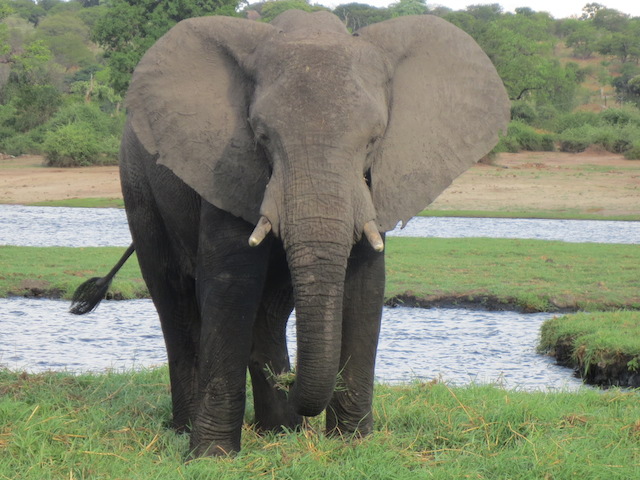
The data we collected throughout our time in Botswana will be used by natural resource managers and researchers at the Botswana Department of Wildlife and National Parks and the Okavango Research Institute. Round River also works with SAREP (Southern Africa Regional Environmental Program), a USAID-funded program, to implement effective wildlife monitoring methodologies.
Since wildlife tourism is one of Botswana’s major industries, all land-use management has massive impacts on the country in regards to human, environmental, and animal health.
Valuable Pre-Veterinary Experience (The Good Stuff)
This program involved no direct hands-on veterinary experience with animals. The focus of the program is conservation research and exposing students to real conservation initiatives.
While there is no hands-on veterinary experience, there were many other aspects that I found invaluable to a pre-veterinary education. The curriculum allowed me to become familiar with lots of topics such as community-based natural resource management, conservation genetics, ecological economics, and ecotourism.
Round River programs capitalize on chance encounters with researchers that are visiting their study areas. For example, we got to help a Ph.D. student with camera trap (like the male leopard below) and spoor surveys of large carnivores.
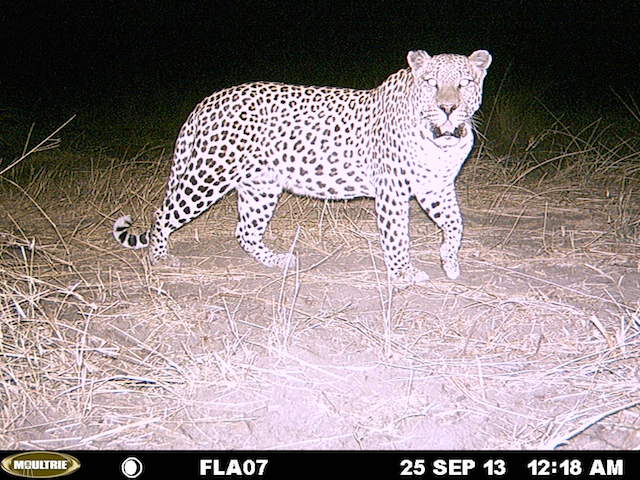 I also had the chance to meet a wildlife veterinarian visiting from Malawi and talk to her about zoonotic diseases and other emerging diseases in Botswana. Another day, I got to meet the director of Botswana Predator Conservation Trust (BPCT) and ask him questions about the conservation of African wild dogs and long-term implications of the current hunting ban in Botswana.
I also had the chance to meet a wildlife veterinarian visiting from Malawi and talk to her about zoonotic diseases and other emerging diseases in Botswana. Another day, I got to meet the director of Botswana Predator Conservation Trust (BPCT) and ask him questions about the conservation of African wild dogs and long-term implications of the current hunting ban in Botswana.
Each day involved meeting new people and hearing different perspectives on conservation. These experiences greatly heightened my understanding of the many roles that veterinarians can play in conservation.
Based on my experience in Botswana, I feel that gaining conservation research experience and talking to professional researchers is essential for anyone that wants to have a career in conservation medicine or any other “One Health-minded” discipline.
Funding, Logistics, Benefits
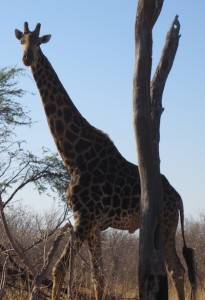 The program provides students with up to 15 credits for 5 courses taught in the field. These credits are transferred from Utah State University. The classes involve lots of journal entries, discussions of scientific papers, individual or small group mini-research projects and learning the natural history of Botswana.
The program provides students with up to 15 credits for 5 courses taught in the field. These credits are transferred from Utah State University. The classes involve lots of journal entries, discussions of scientific papers, individual or small group mini-research projects and learning the natural history of Botswana.
The total cost of the program is $17,200.00 and I was able to use financial aid towards my tuition. Since all housing, meals, and ground transport were covered for 12 weeks and I received 15 credits from Utah State University, I think it was a great value.
We were in the bush for a large majority of the trip, making the trip essentially like a 12-week safari. A 12-week safari through a commercial safari company with all accommodations covered would have been ridiculously expensive. The only personal expenses required were for gear and clothing (which can be very inexpensive by going to gear-exchanges) and plane tickets (approximately $2,000.00).
Since Round River is accredited through Utah State University, many schools accept Round River programs for whatever normal financial aid or loans you receive. Round River also has need-based scholarships available.
Life in the Bush: “This is Botswana”
Personally, I was a little worried about what our diets would consist of during the semester. However, it was not a problem at all and I actually learned how to make a decent meal over a campfire. Our diet mainly consisted of oatmeal, beans, rice, pasta, and vegetables when we could acquire them.
Car repairs and subsequent schedule delays are another bush reality that should be expected when conducting this type of research. Students should also be prepared to live in a small group (10 or less) throughout the entire semester.
When I mentioned that this experience is the “Real Africa,” I meant it in every way. In some of the places we camped, there were no outhouses or showers, so we dug our own latrines and took sponge baths instead. Perhaps the harshest reality in the African bush is the threat from predators, which we managed on a daily basis.
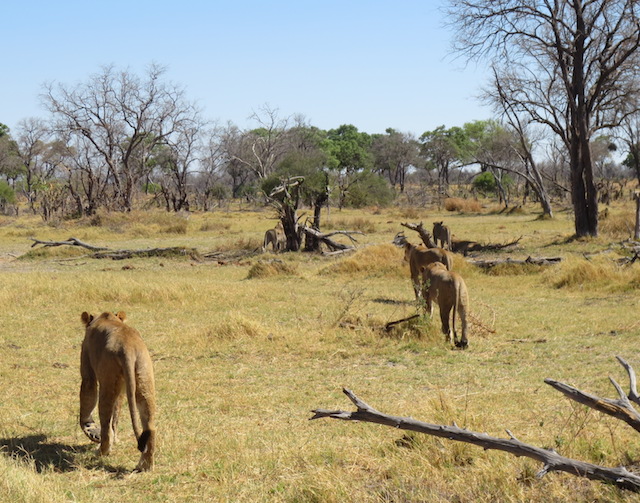
As a general rule, our entire group stayed in tents or around a campfire once the sun went down due to many occasions when lions, spotted hyenas, leopards, and a variety of snakes (black mambas, Mozambique spitting cobras, and more) were spotted near camp.
As one of the local escort guides told me with evident pride, “Remember, at all times, this is Botswana.”
—
Elliott here again. Thanks to Ben for sharing about his experience in Botswana! It does sound like an incredible experience, and I know it will help him stand out from the crowd on those vet school applications.
The main thing that gives me pause is the price tag for the program, but I also know that it is pretty equivalent to the normal cost for a regular semester at most private colleges and universities.
Make sure you check out some of the other posts I’ve written about opportunities in Africa here.
Has anyone else participated in a program like this, in Africa or elsewhere in the world? Do you have any idea of what kind of impact it had on your success with vet school applications?


Comments
I really love this am a veterinary student year one and love wildlife practice really and ecotourism